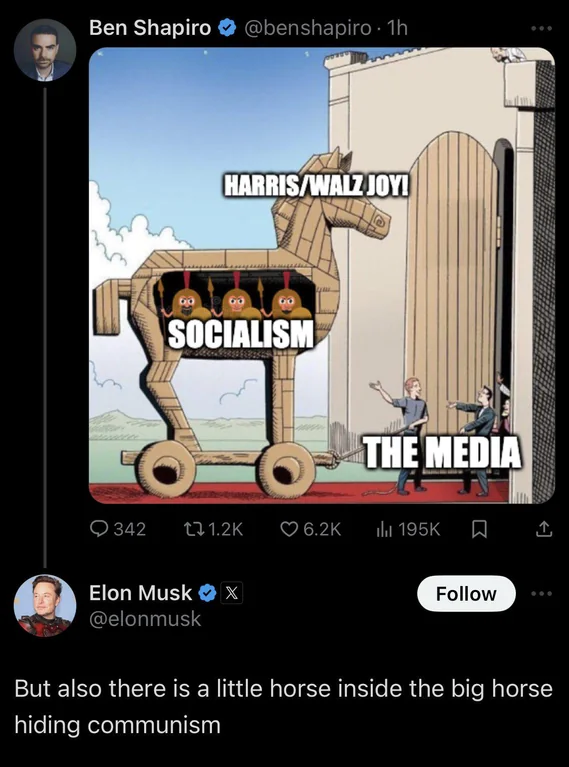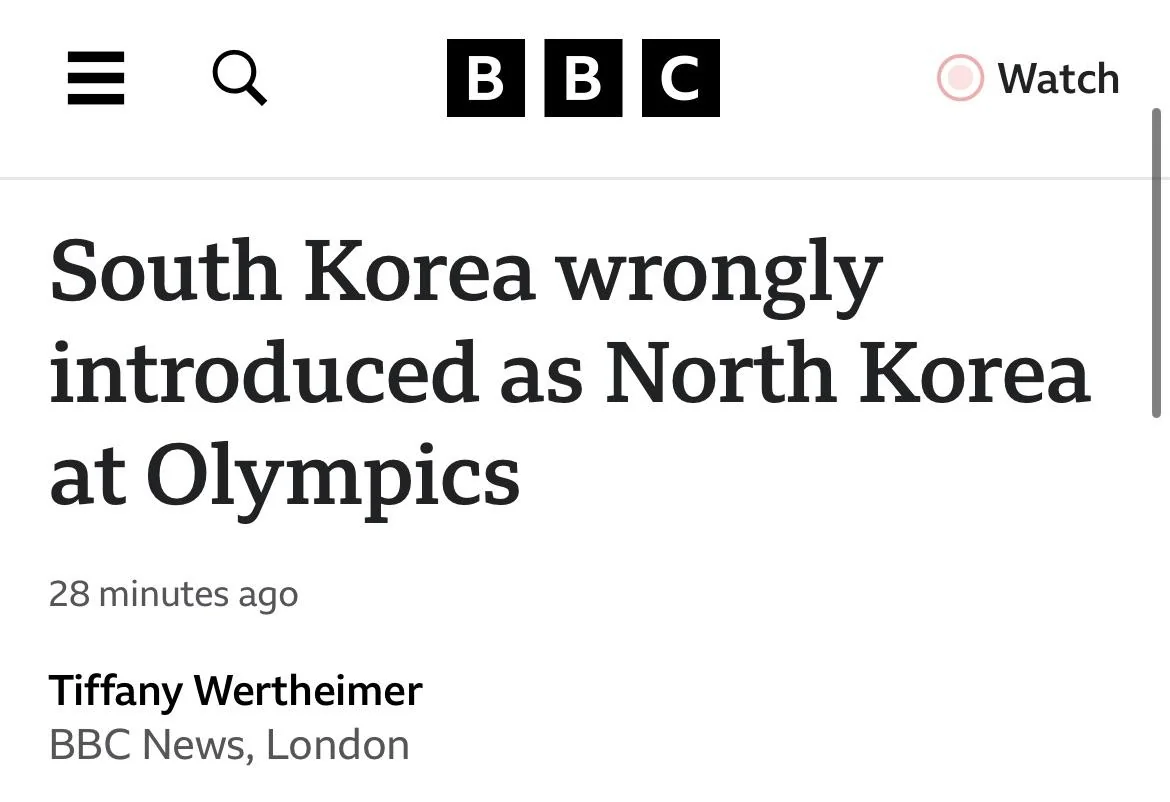My cousin Carl is more fash than Biden
Antiwork
I don’t know the person and they be a nazi, but that’s not what the quote says. It directly after says the worst genocide by Israel against Palestinians.
Idk about this but they def prove th existence of hexsalmon
lol literally a site tagline
One issue I have with hexbear is that you can't argue with its users on hexbear itself. Most comments from outsiders are deleted within a day, and most of the users aren't interested in discussions and simply resort to name calling and personal attacks. The more "sophisticated" ones will tell you to "read theory". The amount of hexbear users actually capable of producing arguments seems to be very low, at least from my experience.
These issues exist on other instances as well of course, but on hexbear its particularly bad. The only other instances this toxic I have interacted with were lemmygrad and exploding-heads.
Eat shit liberal
Low Energy
Using Prolewiki as the source.
In a bourgeois democracy, the role and nature of the police are complex and often controversial. Based on the principles outlined in ProleWiki, we can analyze the police in bourgeois democracies as follows:
Function within the Capitalist System
The police in a bourgeois democracy primarily serve to maintain the existing social and economic order, which benefits the bourgeoisie (ruling class) at the expense of the proletariat (working class)[1][2]. Their main functions include:
- Protecting private property and enforcing property laws
- Suppressing working-class movements and strikes
- Maintaining public order in a way that preserves bourgeois interests
Relationship to State Power
In bourgeois democracies, the police are an integral part of the state apparatus, which Marx and Lenin described as an instrument of class rule[2]. The police, along with other state institutions, help to enforce the "dictatorship of the bourgeoisie" - the political dominance of the capitalist class.
Role in Social Control
The police play a crucial role in social control within bourgeois democracies:
- Enforcing class divisions: They often disproportionately target working-class and marginalized communities.
- Suppressing dissent: Police are frequently used to break up protests and demonstrations that challenge the status quo.
- Maintaining ideological control: Through their actions and public presence, police reinforce the legitimacy of the bourgeois state.
Contradictions and Limitations
While the police in bourgeois democracies claim to serve and protect all citizens, their actions often reveal the class nature of their role:
- Selective enforcement: Laws are often applied more strictly to working-class and marginalized communities.
- Protection of capital: During labor disputes, police typically side with employers rather than workers.
- Militarization: Many police forces in bourgeois democracies have become increasingly militarized, reflecting the state's preparation for potential class conflict[4].
It's important to note that individual police officers may not be consciously aware of their role in maintaining class society. Many join the force with genuine intentions to help their communities. However, the institutional structure and function of the police in bourgeois democracies ultimately serve to uphold capitalist relations of production and bourgeois political dominance[1][2].
Sources [1] Fascism - ProleWiki https://en.prolewiki.org/wiki/Fascism [2] Bourgeois democracy - ProleWiki https://en.prolewiki.org/wiki/Bourgeois_democracy [3] Bourgeoisie - ProleWiki https://en.prolewiki.org/wiki/Bourgeoisie [4] Democratic People's Republic of Korea - ProleWiki https://en.prolewiki.org/wiki/Democratic_People's_Republic_of_Korea [5] ProleWiki:Principles https://en.prolewiki.org/wiki/ProleWiki:Principles
I read theory but don't read the articles
This is such a good idea. Are you a teacher? Lol
Just wanted to add to this. Instead of points. We have users score on the last test and overall grade since they were a user on the site. Report Cards will submitted at the end of the year. You will have a cumulative GPA. You are only sent to theory purgatory once you are failing for the whole school year. We will have long written responses where a group of hexbears will grade you and give you feedback. High scoring students will get extra badges.
I wonder what they do with all that wealth? I'm sure it's not to create more power for themselves and less power for everyone else
There's only one community.






If they had it their way everyone would be a gig worker and for those who work on computers they would make sure any second spent not looking at the screen would be docked pay